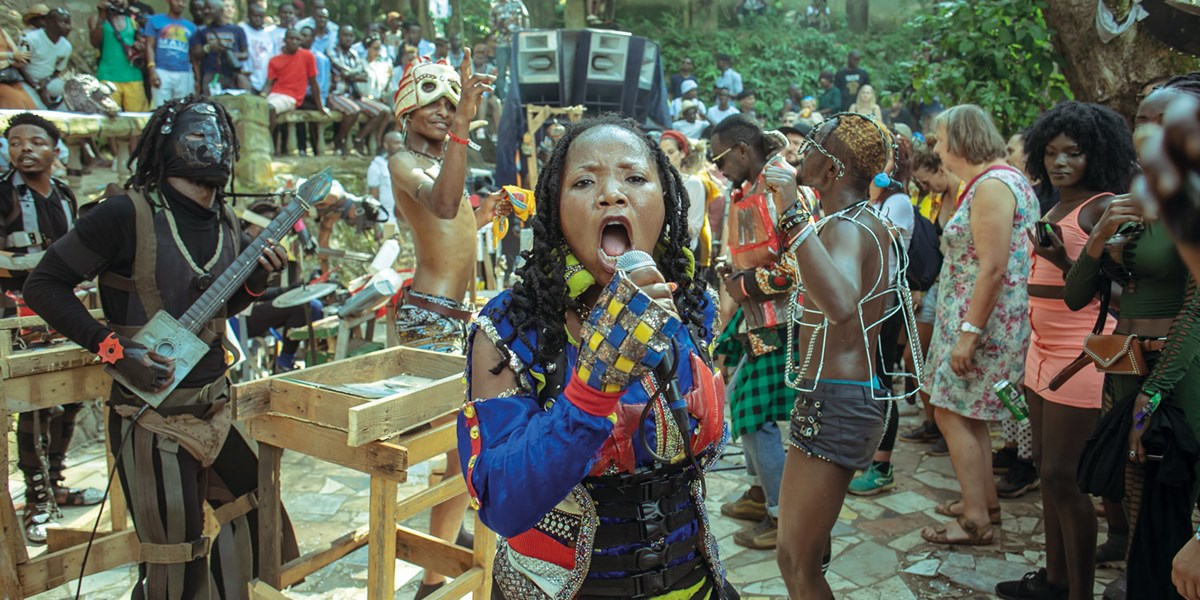Thursday, May 15, 2025
10 Years of Uganda’s Nyege Nyege Festival
By Erin Cobby
As Uganda’s Nyege Nyege Festival celebrates a 10th anniversary which once seemed highly unlikely, Erin Cobby dives deep into an event that has put its local artists on the map. “We spent our life savings”, she finds out

Lady Aicha, 2019

Register now to continue reading

Thanks for visiting the Songlines website, your guide to an extraordinary world of music and culture. Sign up for a free account now to enjoy:
- Free access to 2 subscriber-only articles and album reviews every month
- Unlimited access to our news and awards pages
- Our regular email newsletters

